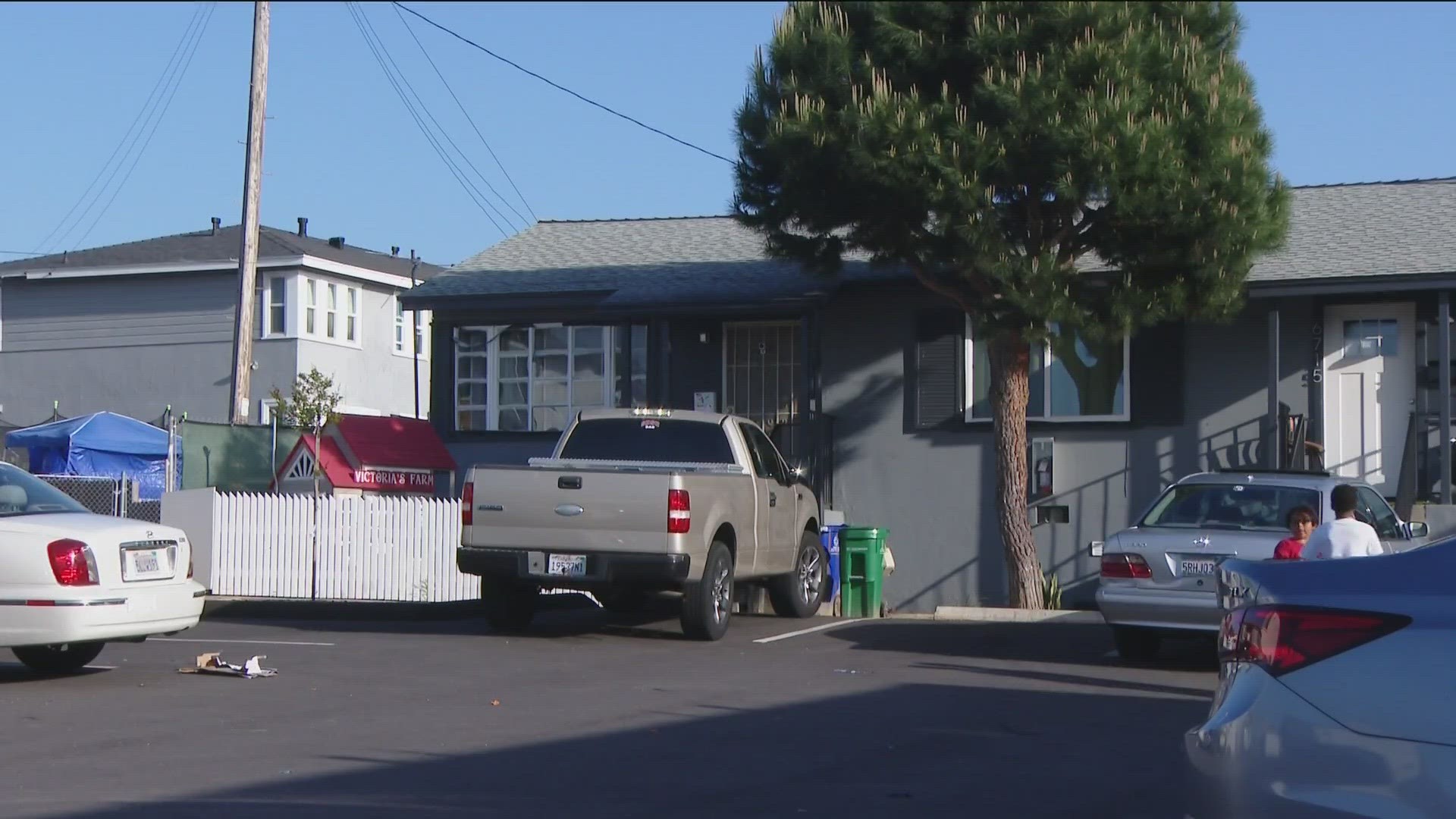SAN DIEGO — On April 25, City of San Diego leaders will take up a new plan which aims to give renters in San Diego more protection from no-fault evictions.
These are tenants who are current on their rent and have followed the terms of their lease.
The state of California enacted stricter renter protections back in January of 2020. However, under Assembly Bill 1482, if a city already had a renters ordinance in place, those previous rules would still have precedence.
This means that tenants and landlords in San Diego are still operating under the city-wide ordinance dating back to 2004.
"Currently, the city of San Diego tenants have the least amount of protection at the state level," said Gilberto Vera, senior attorney of the Housing Team for the Legal Aid Society of San Diego.
That would change, according to Vera, if San Diego passes the new renter protections currently proposed at the city level.
"San Diego's proposal goes a little bit beyond state law," Vera told CBS 8.
For example, under San Diego's proposal, renters would be protected from day one of their lease, with the exception of three-month contracts.
State law requires at least 12 months tenancy before protections kick in..
San Diego's plan would also require that landlords who are evicting tenants at no-fault of their own - those who are current on rent and have abided by their lease - to pay those tenants two months of contract rent for relocation expenses, and three months for seniors and those with disabilities.
State law provides only one month.
"Especially with the elderly and disabled populations who are on fixed incomes, they are the most at risk of becoming homeless, so that makes this transition really difficult," Vera explained.
San Diegans who are renting under the Section 8 housing voucher program would also qualify for relocation assistance, while the state's law is not clear on that issue, according to Vera.
While the City of San Diego's proposal exceeds the state's current law on several fronts, Vera added that on the county level, San Diego's protections would not be the strictest.
"Chula Vista goes a lot further," Vera said.
Under Chula Vista's policy, which was passed last month, protections also begin on day one, but do not include San Diego's exception for short-term leases.
"It's also weaker in that the exclusions under the Chula Vista ordinance do not exclude properties built in the last 15 years," he said. "The City of San Diego's proposed ordinance currently does."
While the length of relocation assistance, two to three months, is the same, under Chula Vista's rules, the landlord must pay the larger amount between the tenant's current contract rent and the going market rate.
"Generally, the population being displaced is long term tenants who are paying below market," Vera added.
He also pointed out that one way the city of San Diego's proposal is stronger than both Chula Vista and the state: San Diego's would include so-called 'buy-out protections', meaning that before initiating a no-fault eviction, the landlord must officially inform the tenant what their rights are, including how much relocation assistance they are legally entitled to
Vera added that it's more important than ever for tenants to know their rights. A series of workshops for renters is being offered by the Eviction Prevention Collaborative: click here for more information.
WATCH RELATED: San Diego leaders unveil tenant protection ordinance to combat homelessness (April 2023).

